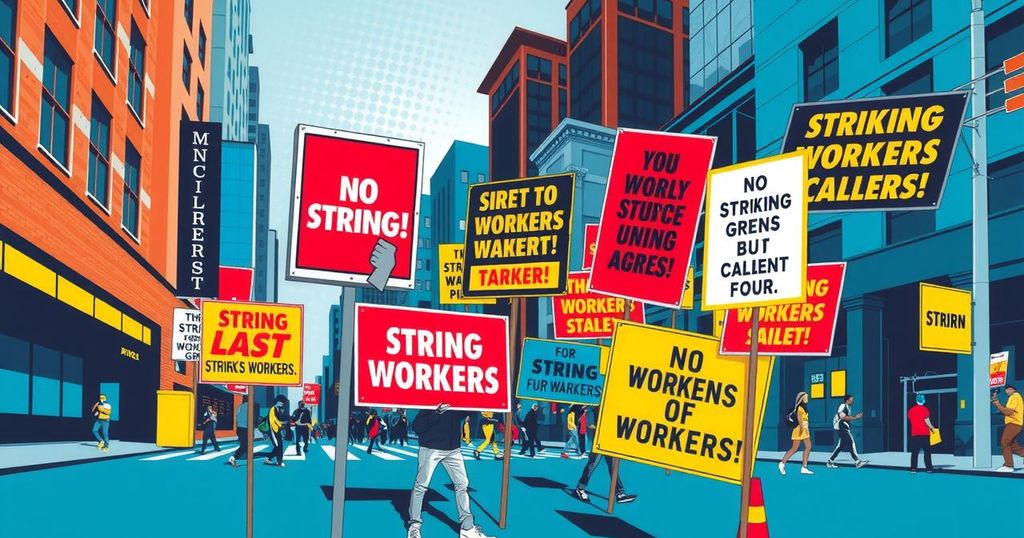Colombian Unions Strike in Support of President Petro’s Labor Referendum

Colombia’s labor unions commenced a 48-hour strike in support of President Petro’s proposed referendum to overhaul labor laws. The protest reflects frustrations over Congress’s rejection of reform efforts. Union leaders emphasize the necessity of the referendum as a means to protect workers’ rights. Tensions between the executive branch and Congress persist as Petro prepares to consolidate his legacy ahead of elections.
Colombia’s labor unions initiated a 48-hour strike on Wednesday, lending their support to President Gustavo Petro’s referendum aimed at revising the nation’s labor laws. The strike follows Petro’s claims that Congress has repeatedly thwarted his attempts to implement reforms beneficial to workers. The proposed referendum would allow voters to weigh in on key issues, such as limiting workdays to eight hours.
This mobilization originated after Congress rejected Petro’s labor reform proposals on two separate occasions, the latest being in March. Frustrated by the legislative body’s refusal, Petro submitted a 12-question referendum proposal on May 1, but just two weeks later, Congress voted narrowly against it. Accusing lawmakers of fraud, the president called for workers to demonstrate in favor of the changes he seeks.
Fabio Arias, president of the United Workers’ Central, voiced the unions’ position passionately. “We are telling the Senate that it cannot continue legislating against the working class,” Arias said, making a significant demand for the approval of the referendum as a means to restore workers’ rights. His union reportedly aims to involve at least three million workers in this strike.
Protests erupted across Colombia’s major cities, with union members taking to the streets. In Bogotá, demonstrators blocked certain bus lanes, hindering public transportation and affecting thousands of commuters. One protester, Yeimy Cante Toro, expressed her motivation for participating in the strike, stating, “I’m mobilizing because I feel that my rights have been violated.”
With tensions continuing between Petro and Congress, Interior Minister Armando Benedetti announced that if lawmakers do not revisit the referendum by June 1, Petro will issue a decree to authorize it. The contentious relationship has roots in Petro’s initial tenure starting in 2022, but it has intensified recently as he aims to solidify his legacy ahead of upcoming elections.
Mauricio Velásquez, a political science expert from the University of Los Andes, commented on the implications of Congress’s rejection of labor reform. He said, “Congress gave the government a lifeline at a moment of great weakness by rejecting the labor reform,” suggesting this may allow Petro to shift more focus on the political landscape as he rallies support among the electorate.
The ongoing strike by Colombia’s labor unions signifies a critical confrontation over the proposed labor reforms. President Petro’s push for a referendum highlights mounting tensions between his administration and Congress, with workers rallying for what they perceive to be their rights. As the potential referendum looms, the dynamics within Colombia’s political scene have become increasingly charged, setting the stage for significant developments ahead of the next elections.
Original Source: www.tdtnews.com








